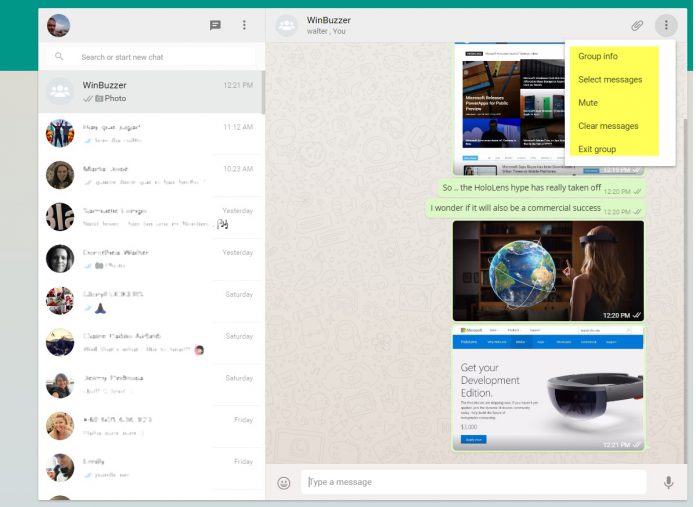A subtle leak could point to popular messaging service WhatsApp coming to the Windows PC platform in the form of a dedicated application.
While it is easy to see WhatsApp as a mobile oriented service, the company as often described its aspirations to be an all-platform messaging services.
However, considering users need to have a mobile numbers to connect to the service, there have been obvious limitations to where the app is available.
So, while WhatsApp has been available on Android, iOS, and Windows Phone for some time, it has never made its way to desktop platforms like Microsoft's Windows or Apple's Mac OS X.
Alleged screenshots uncovered by WABetaInfo (WhatsApp dedicated Twitter account) suggest that the company is working on a bespoke Windows desktop application.
You can see these screenshots. #WhatsApp #Mac #Windows #NativeClient #iOS #Android #WP #Blackberry #Symbian #Nokia pic.twitter.com/AKja58zf5C
— WABetaInfo (@WABetaInfo) April 29, 2016
At the moment using WhatsApp on a PC is only possible with a mobile device that can logon using the QR code, a kind of ad hoc version of the popular messaging service. However, a dedicated application would allow users to logon directly on the PC and would also bring about a change in how you sign up for the service.
Earlier in the year, WhatsApp became free to all users, so it is now a logical step that the company is pursuing its aspirations to be an all-platform provider. A download page was found for both Windows (“Download for Windows) and Mac OS X, although at the moment these images are not confirmed as the real deal.
WhatsApp clearly sees the potential of tapping into an even greater user base. Many predict that the company will embrace advertising more since it has gone completely free, so more screen real estate afforded by laptops, desktops, and tablets could be an important part of increasing revenue.
If true, it will be interesting to see if the service will embrace the Windows Universal Platform concept and develop and app that is available across all devices running Windows 10.






